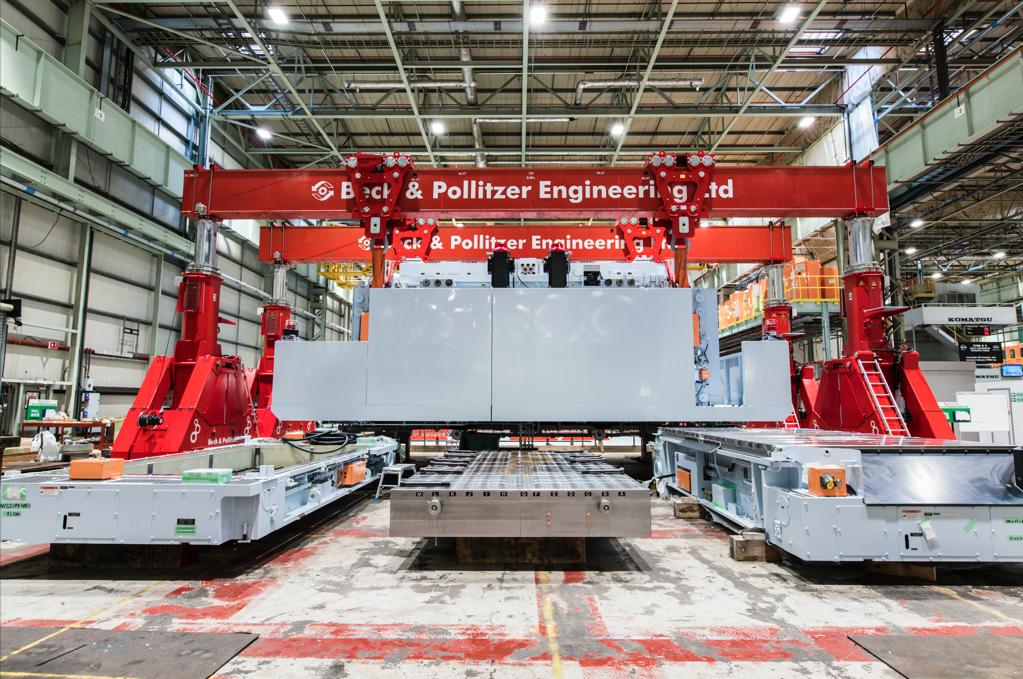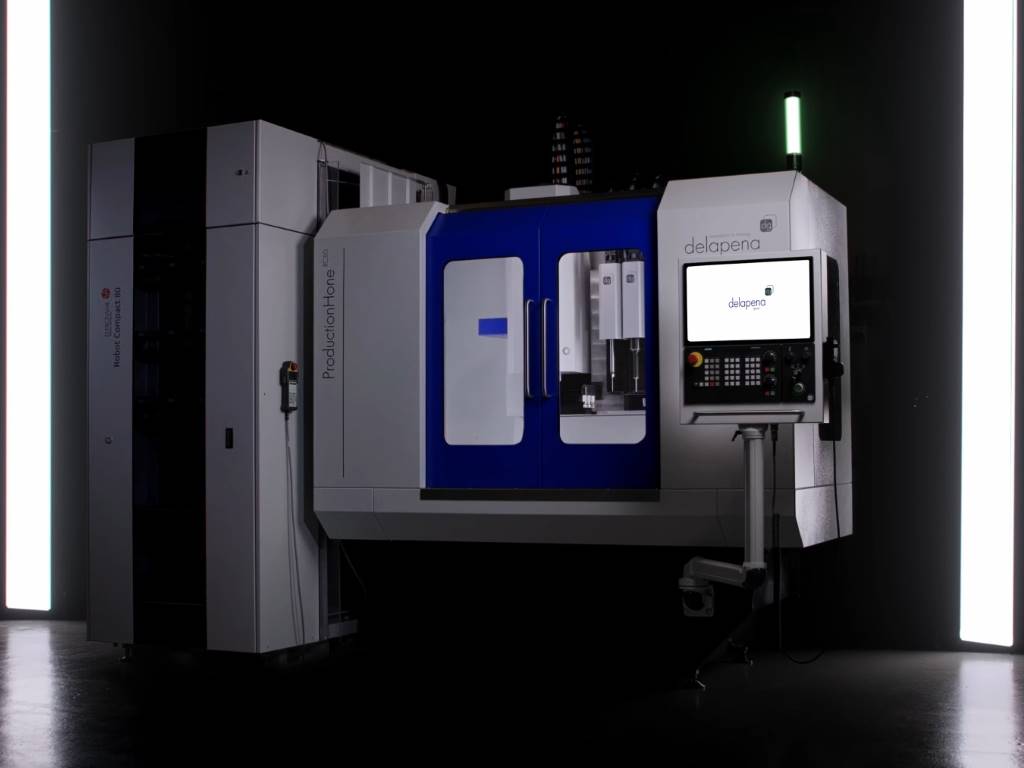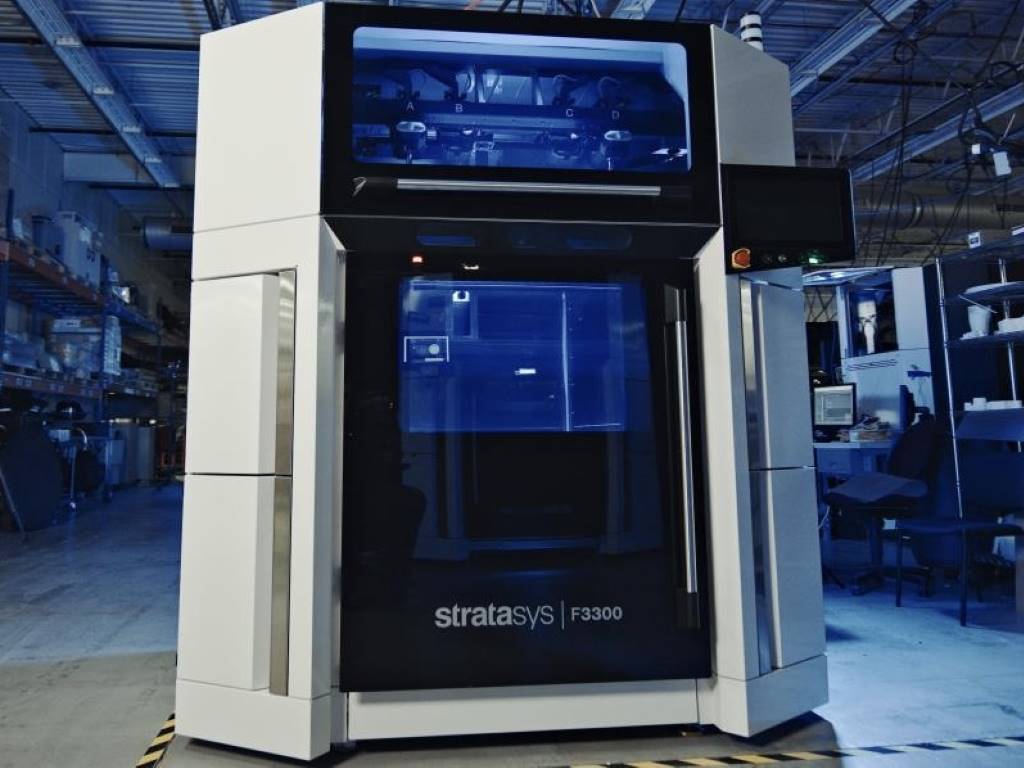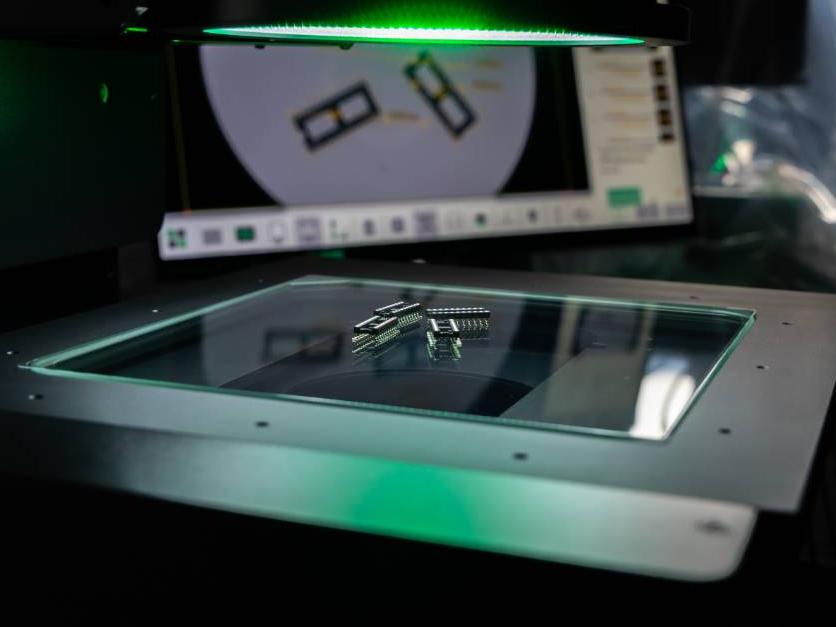We’re coming home – evidence of reshoring grows

With a Brexit deal finalised at the end of 2020 and the COVID-19 vaccination rollout programme well underway, manufacturers expect 2021 to be a better year. But global shocks are not going away. As Will Stirling reports, organisations are uniting to show companies which source parts from abroad that there are alternative UK suppliers who can offer short lead-times, high quality, proximity and ease of doing business.
With a Brexit deal finalised at the end of 2020 and the COVID-19 vaccination rollout programme well underway, manufacturers expect 2021 to be a better year. But global shocks are not going away. As Will Stirling reports, organisations are uniting to show companies which source parts from abroad that there are alternative UK suppliers who can offer short lead-times, high quality, proximity and ease of doing business.
In early January, British bus maker Alexander Dennis (ADL) announced it will manufacture the chassis for both its BYD ADL branded single- and double-deck electric buses in the UK. Previously, the chassis were made in parent company BYD’s factories in Hungary and China and shipped to the UK for assembly, with the change ensuring that complete vehicles will be made in Britain. Both countries are known for having lower production costs than the UK.
It is the latest strong example of ‘reshoring’, or companies moving production of a key component to the UK from abroad or, in some cases, relocating whole factories to the UK. The reshoring trend, which was established long before the coronavirus pandemic, has several logical reasons behind it, but the two most important today are probably Brexit and COVID-19 and the supply chain disruption that both cause.
Shorter supply chains in the UK means faster parts delivery and therefore faster customer deliveries, often better quality, as well as quicker, native communication with the supplier, who can be visited in hours or minutes. There is also rising public popularity in ‘Made in Britain’, with a rise of devoted groups, brands and Twitter accounts championing local makers, and a tangible public sense of support for local companies during an incredibly tough 2020 for business.
While the notion of bringing manufacturing home is supported by many, it is challenging in practice. A big barrier to many firms, says Julia Moore, CEO of the Gauge and Toolmakers Association (GTMA), is the lack of visibility of alternative, UK-based suppliers of the components they need: “Purchasing managers are often given a list of suppliers to procure from, many of which are overseas, and tasked with negotiating the price,” she explains. “They just don’t know that a UK supplier of that component exists and, if they did know, might assume that the product will be more expensive.”
Find what you need – down the road
Having experience of supply chain events at the GTMA and seeing the wider problem, several years ago Julia Moore founded an online collaborative marketplace, ReshoringUK. Trade associations and research institutes can join and list their members that have a specific engineering discipline, such as forging, abrasives, fabrication, composites, additive manufacturing, CNC machining, as well as services from jigs and fixtures, CAD design and more.

Companies that need a components made from these manufacturing technologies, and who typically use foreign suppliers, can search by category and find a UK-based supplier. Quotations for quantity and price is done offline to the platform.
‘ReshoringUK’ now has more than 30 trade bodies and research groups, whose members get virtually free new business leads. Ms Moore says collaborating with and not competing against the business associations is ReshoringUK’s USP; it is the only network that unifies the communities of these groups for common benefit.
“The collaboration really took-off in March with the first COVID lockdown, when industries, perhaps for the first time, became acutely aware how vulnerable their supply chains were to a global shock,” she says. “We are unique in having 32 business associations currently working together to provide a connected UK supplier base to strengthen our manufacturing supply chains across the whole of the UK and Northern Ireland.”
Hydrogen, space and automotive look local
Three new business associations recently applied to join ReshoringUK: the Scottish Plastics and Rubber Association, Midlands Fuel Cell and Hydrogen Network (MFCHN) and UkMfgUnite, which describes itself as a free collaboration run by manufacturers for manufacturers to build a referral network.
MFCHN has over 250 organisations listed and a dedicated MHFCN Business Forum with around 30 businesses. Chairman Michaela Kendall, CEO and founder of fuel cell company Adelan, says the domestic hydrogen industry needs to help itself as UK government support here is weak; recently chemicals giant Ineos said it would make its fuel cell car in France and Ceres Power, a fuel cell company, would manufacture its fuel cells in Germany.

Thomas Keating Ltd is an experienced designer and manufacturer of space flight hardware and systems and a member of the GTMA Space Cluster.
Along with its UK and European colleagues, in 2015 the company won the contract to design, manufacture and qualify three components for the Microwave Sounder Instrument (MWS) Quasi-Optical Network, which forms the front end of the MWS.
The MWS will measure the temperature and water content of the atmosphere that will provide a significant part of the backbone of data required for global weather parts under space conditions. The first system is due to be launched in 2022.
Thomas Keating is now part of ReshoringUK that will assist in accessing future projects such as suites of injection mould tools, subcontract precision machining and space hardware.
Simon Duke, toolmaking manager at Thomas Keating says: “It has been shown during the COVID-19 crisis, and using the GTMA as a prime example, that manufacturers in the UK can come together and work collectively on large projects, giving confidence to customers in the UK and worldwide as to what ReshoringUK can offer.”
Last year, automotive parts manufacturer Albert Jagger reshored production of almost a quarter of a million fastening components from China. In the process it has reduced some of its costs by up to 50%. It sought help from the Manufacturing Technology Centre, the High Value Manufacturing Catapult centre near Coventry, to reconfigure its processes, engage with the workforce, become leaner and allow it to take on this extra capacity profitably.

A team of 11 MTC engineers produced a new factory layout, helped integrate new technology including CNC machines and automation, and retrained staff using virtual and augmented reality. Consequently the firm was able to produce fastening components which had previously been imported from China for between 20% and 50% of the cost. In addition, Albert Jagger has slashed stockholding costs by 50% and created space in the factory for future growth.
Companies involved in supporting manufacturers with capital machinery and installation are naturally supportive that the UK builds its capacity. Andrew Hodgson, CEO at machinery installation specialist Beck & Pollitzer says: “As a passionate UK businessman, I am keen to see my company play the fullest role possible in this initiative. We have played a major part in offshoring for more than 20 years and we are ready to support moves to bring much of this back to the UK.”
Border delays and local fast deliveries
British children’s bicycle company, Frog Bikes, a Queen’s Award winner for Enterprise for International Trade in 2018, has also looked local. ReshoringUK helped the business, with a factory in Wales and headquartered in Ascot, connect with UK-based suppliers for some of its key componentry, instead of using dominant Asian suppliers.
“We are keen to investigate these options both to build resilience in our supply chain, and to reduce the environmental footprint associated with bike production,” says Shelley Lawson, strategy director and co-founder.
Another UK business proactively flying the reshoring flag is BEC Group in Hampshire, a manufacturer of specialised technical mouldings. The company has helped several customers with technical mouldings that had previously been sourced from abroad – frequently the problems were the same; long lead-times, quality issues and, more recently, border delays caused by Brexit.

A customer of BEC’s, Specialised Engineering Products, recently made a conscious decision to source some of its products locally: “The value of having both tooling and moulding capability just down the road should not be underestimated,” says R&D technical manager, Martin Dennis.
“Any tooling modifications can be made within days instead of weeks, we can visit the BEC team at critical stages of the project and deliveries can be done in a day rather than weeks from overseas. By sourcing locally we have much tighter control and, with faster response rates, we can be agile and flexible. All of this enables us to offer a better service to our customers.”
Julia Moore says the manufacturing sector needs to network deeper and more efficiently to unearth its true capacity: “The skilled companies, members of our network, may work in various and disparate industry sectors for example aerospace, medical, rail, space, automotive, pharmaceutical, and energy but many of their skills are transferrable to other sectors – for example last year when automotive companies switched production to the supply and manufacture of PPE to help fight the COVID pandemic.”
More of this kind of lateral thinking and cross fertilisation of capacity would make UK supplier clusters a stronger proposition for OEMs that need quality components in volume. This explains the rise of organisations like UKMfgUnite.
While the coronavirus vaccine programme is welcome news and is on track, Julia Moore believes that global shocks are here to stay: “I appreciate that it is not easy to disrupt and set-up new supply chains, but global shocks do this all the time to manufacturers. Considering the risks they can identify, many can to start to look at alternatives to secure critical suppliers in the UK.”
ReshoringUK www.reshoring.uk














